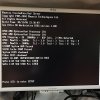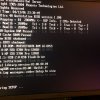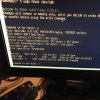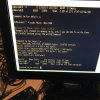I have a Sun Ultra 40, the dvd drive does not work but the USB do. I can install of USB Raspian x86 Linux, Ubunutu 18.04, Solaris 11.4 and Linux Mint. What I cannot install is FreeBSD. The system just freezes when it reaches the USB boot point.
I have tried all the 12.1-RELEASE versions same story.
The Ultra 40 is an amd system with a bios.
any idea on how I install FreeBSD ?
Thank you
I have tried all the 12.1-RELEASE versions same story.
The Ultra 40 is an amd system with a bios.
any idea on how I install FreeBSD ?
Thank you





